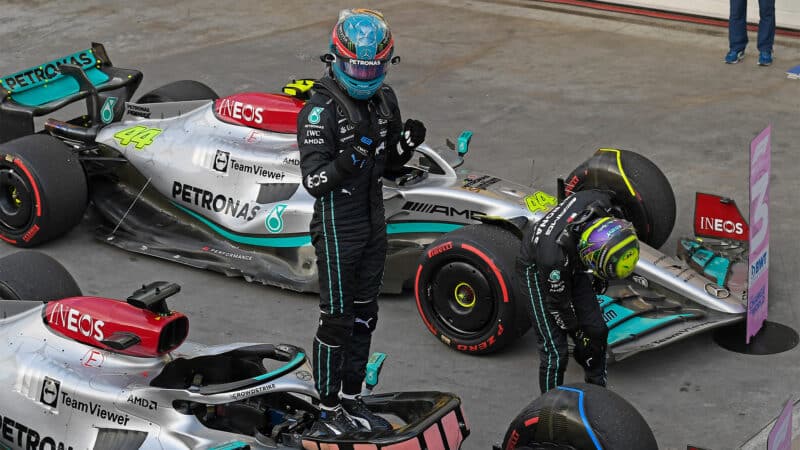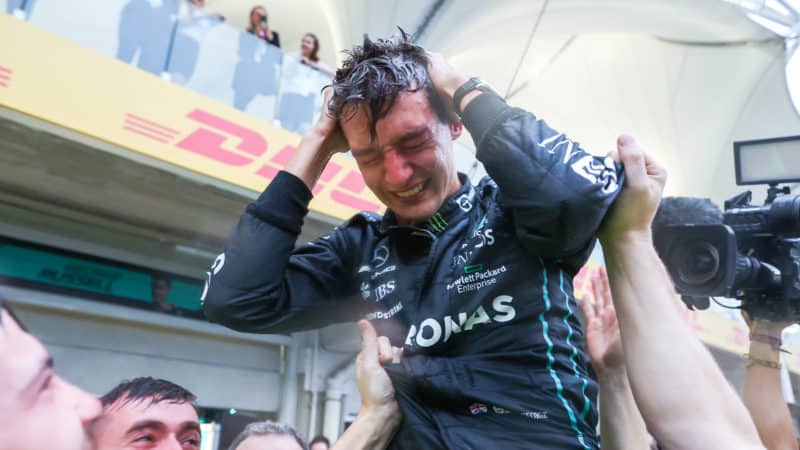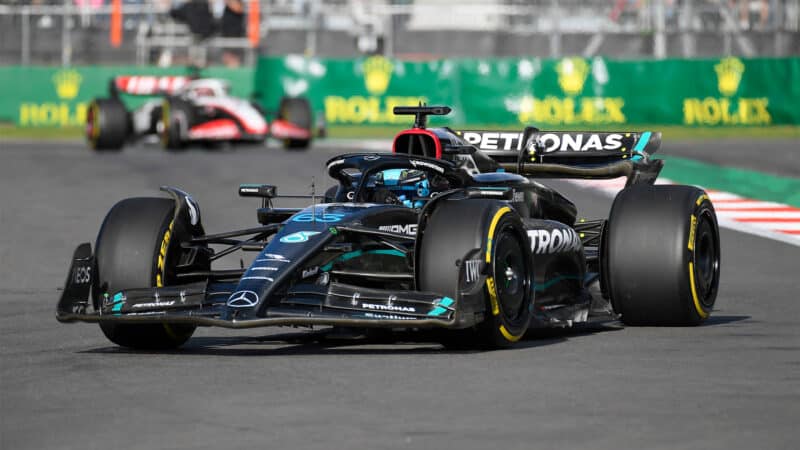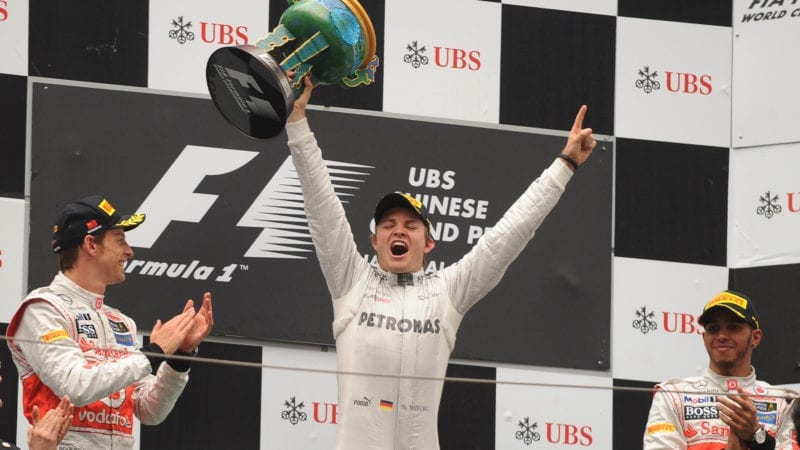The 25-year-old has been more upbeat than you might expect, calling this year his “best season ever in terms of pure performance”, but the 2023 campaign has been overshadowed by unfortunate errors from driver and pitwall.
A clumsy error in Canada meant his Mercedes hit the wall hard at Turn 9 and he later retired; Hamilton finished third. While in pursuit of Lando Norris for second in Singapore, he tapped the wall at Turn 10 and went nose first into the barrier; Hamilton finished third again. Then came Japan, where a lack of race pace saw Russell defend hard against his team-mate in the opening stint and then ultimately lose out to Carlos Sainz for sixth in the closing stages. Hamilton finished fifth.
All told, Russell trails Hamilton 13-5 in race results and 10-9 in qualifying over the season so far. His 151 championship points total is 71 less than his team-mate.
“To be fair he is well ahead of me in the championship this year,” Russell told Motor Sport earlier this year. “But I think Formula 1’s… so unpredictable. At the start of this year, no one would have said Aston Martin would have been so quick, and with [McLaren] so slow, and then suddenly, that’s just reversed from nowhere.”
The current situation at Mercedes is quite a reversal from last year, where Russell appeared to be on terms with his team-mate from the word go. By the time the chequered flag dropped in Abu Dhabi, he had a healthy 35-point advantage over Hamilton in the drivers’ standings, becoming just the third team-mate to best the Briton over the course of a season.
The scene was set for more progression in 2023, while much of the talk around Hamilton involved retirement.

Russell on top, Hamilton forced to play second fiddle. 2023 tells a different story…
Grand Prix Photo
So where has it all gone wrong?
Some call it the Hamilton Effect. While Jenson Button, Nico Rosberg and Russell may have beaten him in the championship, each only managed it once, and the effort of doing so led Rosberg into immediate retirement.
Even F1’s perhaps most self-confident driver, Fernando Alonso, found himself irked in 2007 by both the sheer pace of his rookie team-mate in Hamilton and the galvanising effect it had on the team around him.
Consistently beating Hamilton has proved beyond any team-mate so far, as the seven-time champion’s ability to sense, adapt and strategise remains at a heightened level.
It has proved crucial in a season where the W14 is among many cars driven on a “knife edge”, as described by Toto Wolff. “You can quickly fall off it and lose the confidence,” he said. “On the other side, if you’re within that corridor of sweet spot, good things can happen.”



